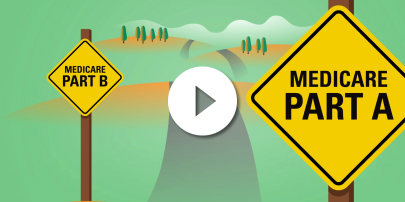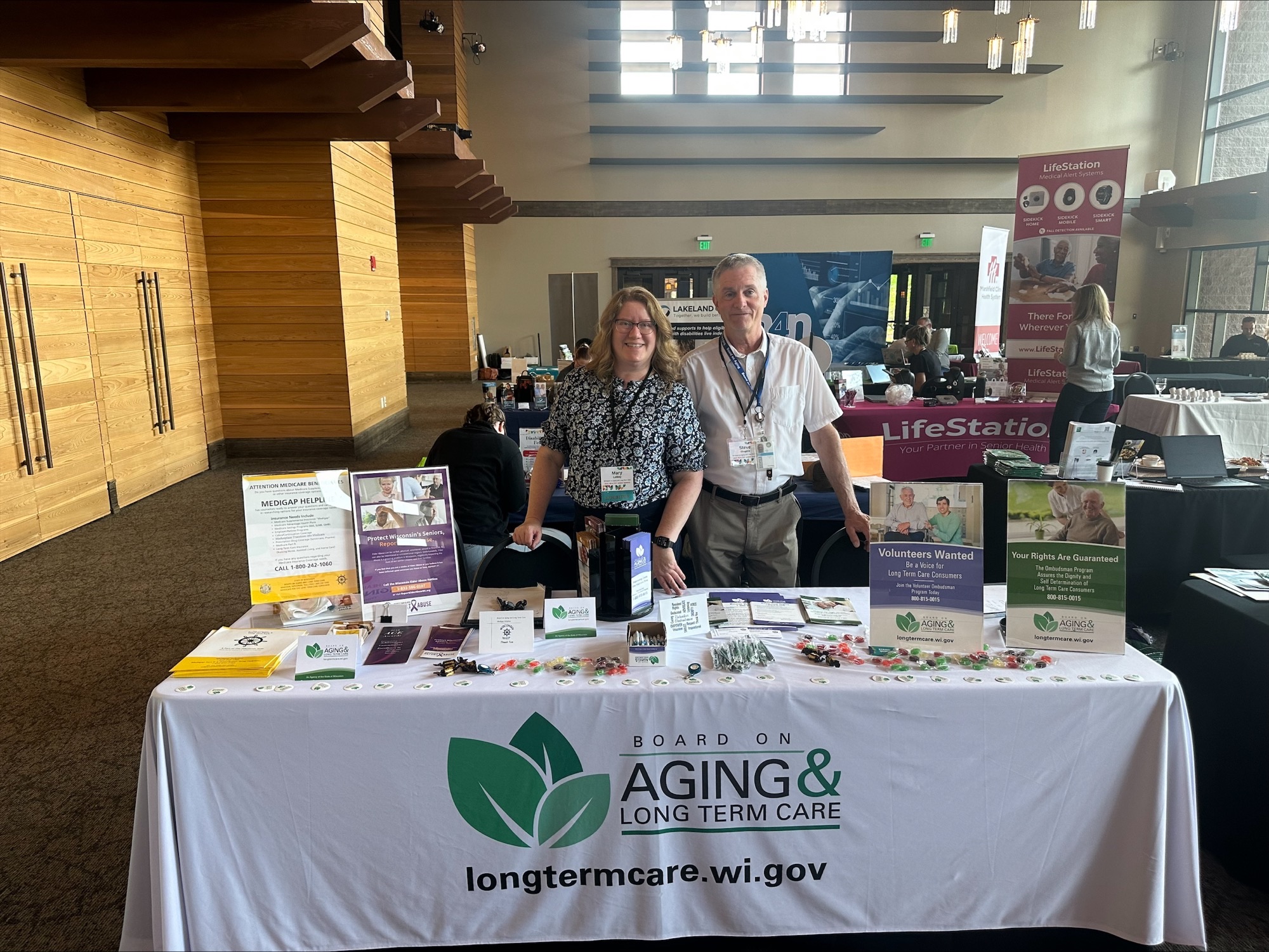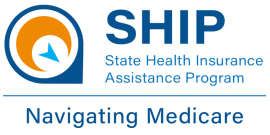MEDIGAP HELPLINE
1-800-242-1060
BOALTCMedigap@wisconsin.gov
MEDIGAP PART D & PRESCRIPTION DRUG HELPLINE

Medicare.Gov Plan Finder Resources & Assistance
Click the 'Request Assistance' button above and complete the form to request the Medigap Helpline's help reviewing your Medicare Advantage or Part D plan options. Additional resources are also available below.
A Youtube video explaining how to use the Medicare.Gov plan finder tool to compare Medicare Drug Plans.
Using the Plan Finder to Compare Medicare Advantage Plans
A Youtube video explaining how to use the Medicare.Gov plan finder tool to compare Medicare Advantage Plans.
A PDF document outlining how to create a Medicare.Gov account and how to use the Medicare.Gov plan finder to view your projected costs and select a Medicare Advantage or Part D Plan.
What are the Medigap Helpline Services?
The State of Wisconsin
Medigap Helpline and Medigap Part D & Prescription Drug Helpline are a part of the Wisconsin State Health Insurance Assistance Program (SHIP). The Medigap Helpline Programs are statutorily authorized and provide free telephone
counseling services, public education, and training for professionals regarding Medicare-related insurance and Long Term Care insurance for individuals in Wisconsin. The toll-free telephone number for the Medigap Helpline, 1-800-242-1060, can be found on the back of the Wisconsin Medicare & You book.
The insurance counselors at the
Medigap Helpline are certified SHIP counselors and can assist individuals in navigating Medicare-related insurance coverage options. Counselors are required to obtain and maintain State of Wisconsin Insurance Licenses for Life and Health Insurance. The counselors are a part of the SHIP program and are not connected to any insurance company, meaning they cannot endorse one insurance company over another.
The
Medigap Part D and Prescription Drug Helpline is a toll-free helpline that assists individuals in understanding and selecting suitable Medicare-related prescription drug coverage.
Click here to watch an informational video:

Medicare Advantage Open Enrollment Period
The Medicare Advantage Open Enrollment Period runs from January 1st to March 31st each year. Enrollments made during this enrollment period are effective the first of the following month.
Important: Medicare Advantage Plan Terminations
If you received a notice that your Medicare Advantage plan will not be offered in 2026, you may have additional enrollment opportunities and options. For more information, review our publication: Advantage Plan Terminations
What are my options during the Medicare Advantage Open Enrollment Period?
If you are currently enrolled in a Medicare Advantage plan, you can:
How can I enroll in a new Medicare plan?
To enroll or change Medicare Advantage or Prescription Drug Plans, you can contact the preferred plan’s insurance company directly, call 1-800-Medicare (1-800-633-4227) (available 24/7), or visit
www.Medicare.Gov and click enroll. Additional resources to help you with Medicare.Gov can be found above under 'Medicare.Gov Plan Finder Tool Resources.'
Where can I get help selecting my coverage?
Medicare beneficiaries, relatives, and caregivers can get free and unbiased help with their Medicare related insurance coverage questions and options through the Wisconsin State Health Insurance Assistance Program (SHIP).
Where can I get help from SHIP in Wisconsin?
In Person
-
Disability and Elder Benefit Specialists
-
Benefit specialists provide individual counseling and advocate on your behalf. They also help with Medicare related insurance questions. Many benefit specialists are located at your local Aging and Disability Resource Center (ADRC).
-
You can locate your local Benefit Specialist on the Wisconsin Department of Health Services webpage: Find a Benefit Specialist.
-
Judicare Legal Aid Benefit Specialists
-
Benefit specialists for members of Tribal Nations can be contacted at 1-800-472-1638.
Over the Phone
-
The Medigap Helpline at 1-800-242-1060
-
Medigap Part D Helpline at 1-855-677-2783
-
The Office for the Deaf and Hard of Hearing at 262-347-3045
-
Benefit specialists who can help people who are deaf, hard of hearing, or deaf-blind understand and apply for benefits.
Volunteer at the Medigap Helpline
Medigap Helpline Lead Insurance Specialist, Alyssa Kulpa, and Medigap Insurance Specialist, Sarah Schellinger, provide a Medicare Overview presentation, including information about the services by the Board on Aging and Long Term Care and Medigap Helpline at a senior living community in Madison.
Medigap Helpline Lead Insurance Specialist, Alyssa Kulpa (Right), and Volunteer Ombudsman Program, Volunteer Coordinator, Amy Zabransky (Left), share information about the services offered by the Board on Aging and Long Term Care and Medigap Helpline at the Baraboo Senior Fair.

Medigap Helpline Insurance Specialist, Steve Shapiro (Right), provides information about the Medigap Helpline program services to professionals at the Wisconsin Institute for Healthy Aging's Healthy Aging Summit in Stevens Point.

Medigap Helpline Services Supervisor (Nick Lutes) attends Governor Ever’s bill signing related to providing 100-day prescription drug supplies for Wisconsin SeniorCare Members.
Former Commissioner of Insurance Mark Afable meets with the Medigap Helpline Services staff at the Board on Aging and Long Term Care. Medigap Helpline staff share information about the counseling available to Medicare beneficiaries in Wisconsin.
Medigap Helpline Services are provided by the State of Wisconsin Board on Aging and Long Term Care at no cost. There is no connection with any insurance company. The program is funded by the Wisconsin State Health Insurance Assistance Program (SHIP) under grants from the federal Administration for Community Living and the Wisconsin Office of the Commissioner of Insurance.
The Medigap Helpline is a telephone-based counseling service. It is part of the Wisconsin State Health Insurance
Assistance Program (SHIP).
This website is supported by the Administration for Community Living (ACL), U.S. Department of Health and Human Services (HHS) as part of a financial assistance award totaling $1,061,673 with 100 percent funding by ACL/HHS. The contents are those of the author(s) and do not necessarily represent the official views of, nor an endorsement, by ACL/HHS, or the U.S. Government.
